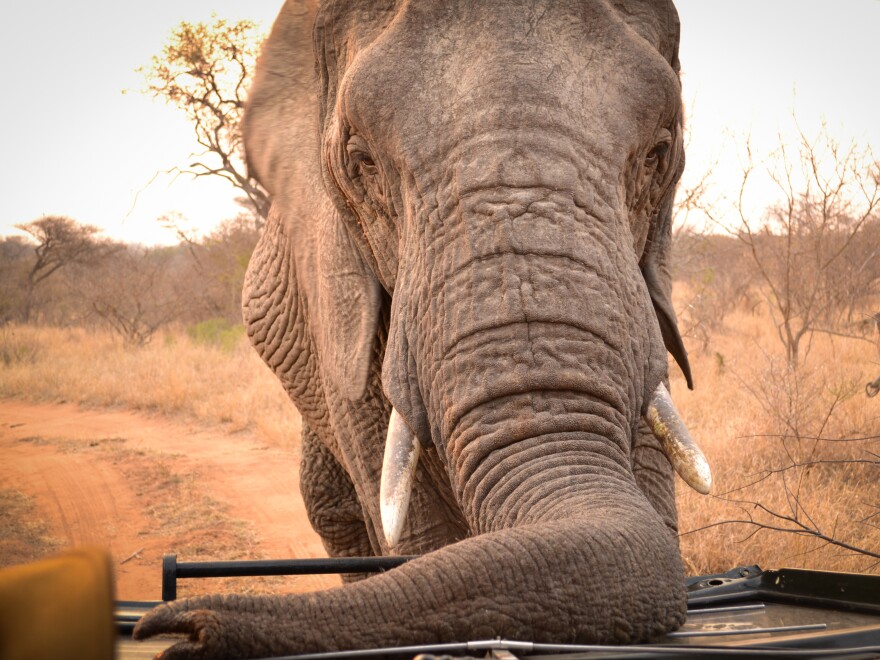In Angola, a civil war that raged for decades has left lingering, and dangerous, reminders of the violence across the countryside. Long since the worst of the fighting ended in 2002, land mines continue to claim lives — and not just those of humans.
Even as the elephant population there saw a replenishment in numbers following the war, many of the mammoth animals were being killed by leftover land mines, as well.
But Angola's wildlife observers have gradually noticed something curious going on. A number of elephants in Angola now appear to steer clear of land mines, even trumpeting warnings about them to other elephants.
That caught the attention of the U.S. Army Research Office, which funded some initial research to see just how, exactly, these lumbering giants manage to sniff out, and step around, the dangerous devices. The idea was to verify whether the claims coming out of Angola were to be believed — and, if so, whether there was any chance of turning these elephants' talents to the purpose of saving lives.
As The Economist has reported: "The US Army's Research Office has been testing the ability of a group of tame elephants in South Africa to find traces of TNT, an explosive, amid decoy odours of bleach, petrol, soap and tea."
Sean Hensman, a South African researcher with the group Adventures with Elephants, took part in that study.
"After a long time," he tells NPR's Scott Simon, "we found out that the [elephants] are very, very good at identifying the scent of TNT and other things, and are very, very quick learners."
And they don't just learn quickly; they also retain that knowledge long afterward.

"We tested one elephant a year after we had done the initial research, and he still passed the whole test with flying colors."
Hensman chalks it up to the elephant's hefty schnozz. "They're reported to have a sense of smell 14 times better than a good dog," he says, "and a good dog is reputed to be about 2,000 times better than you and I."
Hensman is careful to note that the researchers have no intention of actually taking elephants into areas littered with land mines. Rather, he says the U.S. Army is testing the animals' sense of smell in order to design better land mine sensors of their own.
"They spent billions on sensors and understanding a dog's nose. And, you know, if an elephant is that much more sensitive than a dog, they have learned a lot from it. And they've applied that to some of their sensors, which they're testing at the moment."
But that's not where Hensman's ambitions end.
"They're using dogs to detect cancer, they're using dogs to detect diseases," he says, "and if we could use an elephant do the same, then hopefully we can save a lot of people."
For that, elephants could use a little breathless praise. And Hensman's not hesitant about offering them just that.
"They're highly intelligent, they're good fun to be around and to be awed by them is putting it lightly," he says. "They really are very, very special animals."
Copyright 2021 NPR. To see more, visit https://www.npr.org.



